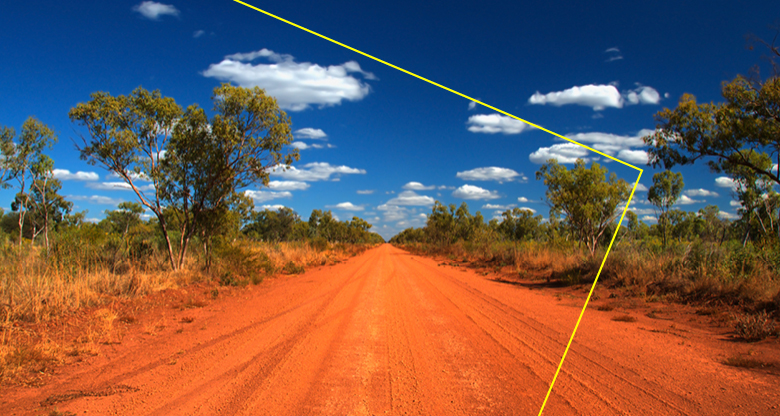Speaking at the Commonwealth Bank’s recent, ‘Financing Australia’s Transition’ sustainability conference, a panel of corporate leaders agreed that these partnerships can bring measurable benefits for purchasing businesses, Indigenous suppliers and the wider community – but that they need to move higher up the corporate agenda in order to achieve better social outcomes and supply chain diversity.
A growing opportunity
Costa Demos is COO and acting CEO of Supply Nation, Australia’s leading database of verified Indigenous businesses. He said the opportunities for corporations to partner with Indigenous businesses have never been greater.
Over the past three years, the number of Indigenous businesses registered with Supply Nation has more than doubled to 3,300, while Supply Nation’s membership base of corporations, government bodies and not-for-profit organisations now numbering more than 570 organisations across the country.
“We register businesses that are at least 50 per cent Indigenous-owned and certify businesses that have at least 51 per cent or more Indigenous ownership, management and control,” he said. “We also know from research that Indigenous businesses are 100 times more likely to employ indigenous workers.”
Demos said the key was to look beyond the immediate transaction and establish a genuine relationship with Indigenous business.
”Building those relationships, being open and giving each other feedback is really, really important,” he said.
Establishing long-term partnerships
Ben Leslie, Indigenous and Social Procurement Lead at Lendlease, said the company’s Gymea Indigenous Supplier Diversity Program was established with the aim of developing long-term partnerships.
“The key focus for the Gymea program was to increase First Nations procurement spend and achieve mutual, long-term business success and to drive more economic and social outcomes for First Nations people,” Mr Leslie said.
Lendlease is committed to increasing its spend with First Nations businesses. To date, the company is meeting its targets, spending a total of $65.4 million with Indigenous businesses in FY2021, up from $55.3 million the year before.
Leslie said Gymea is just one of several Lendlease measures to better support Indigenous businesses. “We introduced 14-day payment terms with First Nation businesses. We've got the Elevate Program to support capability building and ongoing focus on our First Nations strategic suppliers,” he explained.
“We’ve also developed internal First Nation procurement guidelines to give the teams at Leadlease a better understanding of what First Nations procurement is, what sort of businesses we should be looking for (and) where we should source businesses.”
Overcoming barriers with suppliers
Mitchell Ross is the CEO of Muru Office Supplies, an Indigenous business that has office supplies contracts with CommBank, Qantas and Fortescue Metals, among others. He said that in the past, unconscious bias had sometimes stopped organisations adding Indigenous businesses to their procurement mix, but that the situation had improved as businesses like Muru had proven themselves both capable and enduring.
“The sales cycle was significantly longer in our early years because we had to demonstrate to corporates that we weren’t a risk and were credible. I'd have to meet with procurement teams numerous times over a four or five-year period before we got an opportunity with them,” Ross said.
Founded in 2012, Muru has grown to be a multi-million dollar business, returning 20 per cent of its profits to community programs. Ross’ goal is to grow Muru’s annual revenues to $100 million, enabling the business to increase its community contributions to half a million dollars a year.
“Since 2014, we've contributed over $370,000, so if we continue growing and continue developing great partnerships, I'm confident that I can get to that point in the next five to 10 years,” he said.
The financial benefits of supplier diversity
The panel agreed that engaging with Indigenous businesses can deliver both tangible and intangible benefits for everyone – purchasers, suppliers and the wider community. A Supply Nation report has found that every dollar of revenue generated by Indigenous business creates $4.40 in economic and social value. 1
Ross also believes there’s a strong business case for companies to support diversity. “If you're a corporation and you want to attract talent and employees from diverse backgrounds, or you want customers from diverse backgrounds, it makes sense that you have diverse suppliers in your supply chain,” he said.
Demos said it was important for companies to go beyond targets and take tangible action: “Having policies, targets and commitment statements is a good start, but it’s really showing your leadership and advocacy and having supplier diversity within your own organisation that is very important. Having those champions within the business is really key to making it successful.”
To learn more from leading experts about what’s important to business and the economy visit CommBank Foresight™ – insights for future-facing businesses.
The Indigenous Business Experts
Mitch Ross, Chief Executive Officer
Muru
Mitchell Ross is a proud Bidjigal man from La Perouse in southeast Sydney. Mitchell is passionate about growing the Indigenous business sector and giving back to the community.
After working in the IT industry for almost 15 years providing technology services to small business customers, Mitchell discovered the emerging supplier diversity trend in late 2011 and pivoted from IT into workplace supplies.
Mitchell has over 20 years of sales and customer engagement experience along with 10 years of business management and strategic planning expertise.
In his spare time, Mitchell loves spending time with his family and friends, BBQ’s, travelling to tropical destinations, and is an avid sports fan.
Costa Demos, Acting Chief Executive Officer
Supply Nation
Costa is Chief Operating Officer and Acting CEO of Supply Nation, Australia’s leading supplier diversity organisation that facilitates the integration of verified Indigenous businesses into the supply chain of private sector corporations and Government institutions. Since joining Supply Nation in 2018, he has played a key role in developing and executing the organisation’s operational and strategic plans, overseen the rapid growth in Supply Nation’s Indigenous businesses and purchasing organisations, and led several new initiatives aimed at strengthening supplier diversity practices of Australian businesses and government.
Costa has almost three decades of experience across the business and for-purpose sectors, with roles in accounting and business development, information systems management, corporate partnerships, stakeholder engagement, and fundraising at organisations such as The Smith Family, YWCA NSW, and the Children’s Medical Research Institute. His commitment and passion for the for-purpose sector is driven by a desire to contribute to social equity and impact through initiatives that strengthen communities and adopt inclusiveness and diversity in their approach. Costa has an MBA from the Sydney Graduate School of Management and is a member of the Australian Institute of Company Directors.
Ben Leslie, Indigenous & Social Procurement Lead
Lendlease
Proud Aboriginal man from Gamilaraay Country. Indigenous & Social Procurement lead Lendlease. Lendlease leader for Supplier Diversity program Gymea in Australia.




